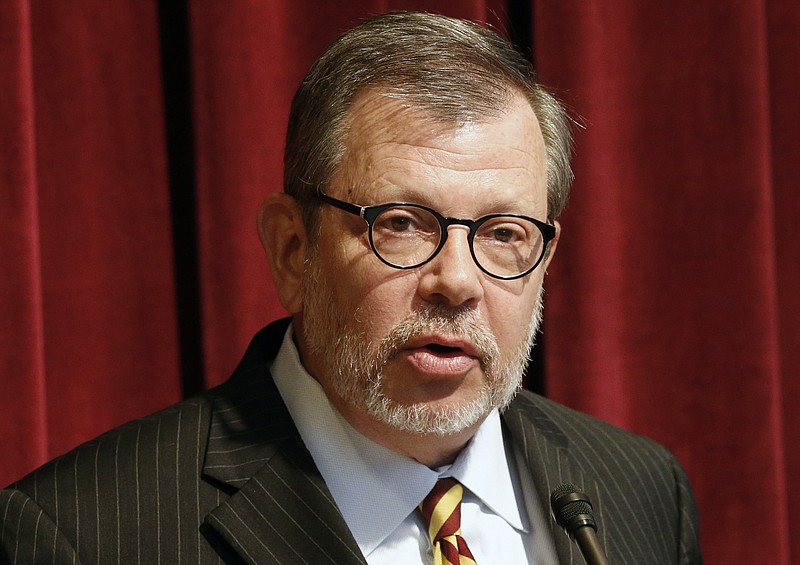MINNEAPOLIS (AP) - Ten Minnesota football players suspended for their alleged involvement in a sexual assault faced a panel of university employees on Thursday and Friday in an attempt to avoid expulsion and other punishments recommended by the school's Equal Opportunity and Affirmative Action office.
The players have denied any wrongdoing and remain enrolled. The university was scheduled to present its findings and call its witnesses to testify during a nine-hour meeting on Thursday and the players were scheduled to present their sides of the case on Friday.
The hearing stems from an incident in September, when a woman alleged she was pressured into having sex with multiple players at an apartment after the team's season-opening win over Oregon State.
Authorities twice declined to charge any of the players, citing a lack of evidence. But the school conducted a Title IX investigation, which carries a lower burden of proof. The investigation concluded that the players violated the student conduct code and recommended expulsion for Ray Buford Jr., Carlton Djam, KiAnte Hardin, Dior Johnson and Tamarion Johnson; one-year suspensions for Seth Green, Kobe McCrary, Mark Williams and Antoine Winfield, Jr.; and probation for Antonio Shenault.
The panel will have one week to come to a decision, which can be appealed to the university provost and then, if need be, in federal court. The guidelines require that a majority of the panel decide it was "more than likely" that the accused violated the conduct code. That is far different from a court of law requiring a unanimous ruling from a jury that a crime was committed beyond a reasonable doubt.
Attorneys for the players have expressed concerns about the proceedings, saying that they have been unable to interview the three-person panel that will preside over the case to see if any of them have any potential biases or past history with sexual assault. They also argued that each player should get his own hearing, but the school denied that request. And lawyers also said the 18 hours of time dedicated to hearings over two days was far shorter than what is normally allowed in the Title IX process.
"We're asking for due process and we're being denied at every turn," said Ryan Pacyga, who represents Winfield.
The suspensions in December caused an uproar in the football program. The entire team argued that the process was unfair and threatened to boycott the Holiday Bowl against Washington State. Two days later, the team decided to play the game, and the Golden Gophers went on to beat the Cougars. But coach Tracy Claeys was fired in part because his public support of his players differed from the stance of both university President Eric Kaler and athletic director Mark Coyle.
The incident has received exhaustive coverage locally and nationally, leading Pacyga to say that it would be difficult for the university to find three members for a panel that have not been influenced by what they have seen in the media or heard on campus. He also said that the players are still entitled to due process even though the closed hearings are not taking place in the court system.
University officials have said repeatedly throughout the process that they cannot comment on the case or the procedures that examine them.
There is no subpoena power in Title IX proceedings, so Pacyga said they were unable to call the Minneapolis police officer who investigated the case to testify and were denied by the university in their request to play a 90-second video that they say proves the woman had consensual sex with two men present in the apartment that night.
Five of the players, including Winfield, were not alleged to have had sexual contact with the woman that night. Pacyga said Winfield came into the apartment to get a 17-year-old recruit out of the situation and left shortly after doing so.
